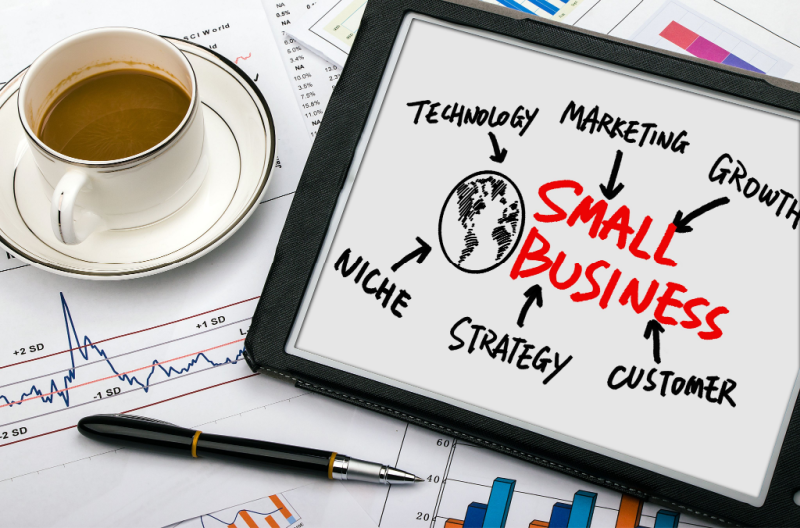The global business ecosystem is poised for unprecedented transformation in 2025. Organizations must anticipate emerging opportunities and challenges to remain competitive. Understanding future business trends is crucial for leaders aiming to navigate complex market dynamics and technological disruption. Companies that adapt early are better positioned to capitalize on innovation, optimize operational efficiency, and cultivate sustainable growth. Strategic foresight in areas such as digital transformation, customer engagement, and workforce evolution can define the success of enterprises in the years ahead.
The Rise of Artificial Intelligence in Business
Artificial intelligence (AI) continues to reshape operational paradigms across industries. From predictive analytics to autonomous systems, AI enables decision-making that is both data-driven and agile. Organizations leveraging AI experience enhanced efficiency, reduced operational costs, and faster response times to market shifts.
Machine learning algorithms are transforming marketing strategies by providing hyper-personalized experiences, while natural language processing powers intelligent customer service platforms. Businesses adopting these solutions gain a competitive edge by anticipating consumer needs, streamlining workflows, and unlocking new revenue streams.
AI is no longer a supplemental tool but a strategic cornerstone. Leaders must integrate AI thoughtfully, ensuring alignment with ethical guidelines, regulatory compliance, and organizational objectives.
Sustainability as a Core Business Imperative
Environmental responsibility has evolved from a peripheral concern to a central strategic priority. Sustainability practices influence consumer behavior, investor decisions, and regulatory compliance. Organizations that embrace sustainable operations not only reduce environmental impact but also enhance brand reputation and long-term resilience.
Key sustainability initiatives include energy-efficient operations, carbon footprint reduction, ethical sourcing, and waste minimization programs. Businesses that integrate environmental, social, and governance (ESG) principles into core operations are better equipped to attract conscientious investors and consumers while mitigating long-term risks.
Future Business Trends in Workforce Evolution
The workforce of 2025 demands flexibility, inclusivity, and skill adaptability. Remote and hybrid work arrangements have become standard, necessitating digital collaboration platforms, virtual onboarding, and performance management systems that transcend geographical boundaries.
Employees increasingly seek professional development opportunities, work-life balance, and organizations that value diversity and equity. Companies prioritizing workforce evolution foster higher engagement, retention, and innovation, creating a culture that adapts seamlessly to changing market demands.
Key strategies to address workforce evolution include:
-
Upskilling and reskilling programs for emerging technologies
-
Inclusive leadership development initiatives
-
Flexible work arrangements and remote collaboration tools
-
Employee well-being and mental health support
-
Performance evaluation aligned with outcome-based metrics
The Transformation of Customer Experience
Customer expectations are rapidly evolving, with personalization and convenience at the forefront. Businesses must embrace data-driven strategies to deliver tailored experiences, leveraging analytics, AI, and omnichannel engagement.
Predictive customer insights allow companies to anticipate behaviors, preferences, and purchase patterns, enabling proactive solutions and hyper-targeted campaigns. Organizations investing in customer-centric strategies cultivate loyalty, enhance brand equity, and achieve sustainable revenue growth.
The Emergence of Blockchain in Enterprise Operations
Blockchain technology is transcending cryptocurrency applications to impact supply chain management, financial services, and data security. Distributed ledger systems enhance transparency, traceability, and accountability across organizational processes.
Enterprises integrating blockchain can streamline operations, reduce fraud, and enable secure, verifiable transactions. Smart contracts, tokenization, and decentralized applications offer new avenues for efficiency and innovation. Understanding the implications of blockchain adoption is essential for leaders seeking to remain competitive in a rapidly digitizing economy.
Internal link: Organizations exploring cutting-edge operational strategies can unlock significant advantages by integrating blockchain solutions effectively.
Future Business Trends in Digital Transformation
Digital transformation is no longer optional; it is a prerequisite for competitiveness. Organizations must continually modernize infrastructure, adopt emerging technologies, and redefine business models to remain relevant.
Cloud computing, Internet of Things (IoT), and AI-driven analytics are central to transformation initiatives. Companies embracing digital innovation enhance operational efficiency, improve customer engagement, and accelerate time-to-market for new products. Strategic digital adoption ensures resilience in the face of disruption and positions enterprises to capitalize on emerging opportunities.
Cybersecurity as a Strategic Priority
As digital ecosystems expand, cybersecurity becomes a critical business concern. Cyber threats, data breaches, and ransomware attacks can significantly disrupt operations and erode consumer trust.
Organizations must implement robust security frameworks, continuous monitoring systems, and proactive threat detection mechanisms. Employee training in cyber hygiene and adherence to compliance standards are essential components of a comprehensive cybersecurity strategy. Businesses prioritizing cybersecurity not only protect assets but also maintain stakeholder confidence and brand integrity.
Future Business Trends in Financial Innovation
The financial landscape is evolving with fintech solutions, digital payments, and decentralized finance (DeFi). Organizations leveraging innovative financial technologies can streamline transactions, reduce costs, and enhance transparency.
Key trends include AI-driven financial analytics, blockchain-enabled payments, and algorithmic investment strategies. Companies adopting these innovations can achieve greater operational agility, attract tech-savvy consumers, and optimize capital management. Financial foresight enables enterprises to anticipate disruptions and align resources effectively for sustainable growth.
Globalization and Market Diversification
Global connectivity presents both opportunities and challenges. Businesses expanding internationally must navigate diverse regulatory environments, cultural nuances, and competitive landscapes. Cross-border strategies require local adaptation while maintaining brand consistency.
Diversified market presence mitigates risks associated with economic fluctuations, geopolitical instability, and regional demand shifts. Companies investing in international expansion gain access to broader customer bases, novel talent pools, and innovative collaboration opportunities.
Automation and Robotics in Operational Efficiency
Automation and robotics are redefining labor-intensive processes across manufacturing, logistics, and service industries. Robotic process automation (RPA) streamlines repetitive tasks, enhances accuracy, and reduces operational costs.
Advanced robotics facilitate precision in production, inventory management, and quality control. Companies embracing automation increase efficiency, scalability, and adaptability. The integration of robotics into core operations allows human talent to focus on strategic initiatives, innovation, and decision-making.
Artificial Intelligence Ethics and Governance
The proliferation of AI necessitates a structured approach to ethics and governance. Transparent algorithms, fairness in decision-making, and accountability frameworks are essential for responsible AI deployment.
Organizations must balance innovation with ethical considerations, ensuring AI applications do not perpetuate bias, infringe privacy, or undermine social responsibility. Leaders who prioritize ethical AI practices enhance stakeholder trust and maintain regulatory compliance.
Internal link: For organizations navigating technological innovation, adopting ethical AI frameworks ensures sustainable and responsible implementation.
Future Business Trends in Marketing and Consumer Engagement
Marketing strategies are increasingly data-centric, leveraging AI, social analytics, and personalized content to reach target audiences effectively. Consumers expect authentic engagement, value-driven communication, and seamless experiences across digital platforms.
Influencer collaborations, immersive technologies, and gamification tactics are gaining traction, enabling brands to create memorable experiences. Businesses adapting to these trends strengthen customer relationships, increase brand loyalty, and drive revenue growth.
Remote Work and Hybrid Organizational Structures
The shift to remote and hybrid work models has permanently altered organizational dynamics. Companies must invest in collaboration tools, cloud infrastructure, and performance management systems tailored to flexible work environments.
Future-ready organizations implement strategies that balance autonomy with accountability, supporting employee productivity while maintaining cultural cohesion. Workforce agility and adaptability are critical for success in the evolving landscape of 2025.
Data Analytics and Predictive Intelligence
Data-driven decision-making is central to modern business strategy. Advanced analytics and predictive intelligence enable organizations to forecast market trends, optimize operations, and personalize customer interactions.
Integrating real-time analytics into decision-making processes allows leaders to identify emerging opportunities and mitigate risks proactively. Organizations that excel in data utilization achieve higher operational efficiency, informed strategic planning, and competitive differentiation.
Sustainability in Supply Chain Management
Sustainable supply chain practices are becoming standard expectations. Companies must minimize environmental impact, enhance traceability, and ensure ethical sourcing throughout their operations.
Implementing circular economy principles, energy-efficient logistics, and supplier compliance programs strengthens brand reputation and reduces operational risk. Businesses prioritizing sustainable supply chains create long-term resilience and align with global ESG standards.
Future Business Trends in Innovation Ecosystems
Collaboration with startups, research institutions, and industry consortia fuels innovation. Open innovation ecosystems provide access to novel ideas, technologies, and market insights, accelerating product development and strategic differentiation.
Fostering partnerships and collaborative initiatives allows organizations to mitigate risks, share resources, and capitalize on emerging opportunities more effectively. Businesses that embrace innovation ecosystems position themselves at the forefront of industry evolution.
Strategic Agility and Organizational Resilience
Agility and resilience are vital capabilities for navigating the uncertainty of 2025. Organizations must adopt flexible structures, iterative planning processes, and adaptive leadership to respond rapidly to changing market conditions.
Scenario analysis, contingency planning, and continuous feedback loops enable enterprises to anticipate disruptions and implement corrective actions swiftly. Companies embracing strategic agility remain competitive and capable of sustaining long-term growth.
Anticipating future business trends is imperative for organizations seeking to thrive in 2025. From technological innovation and workforce evolution to sustainability and data-driven strategies, these trends define the trajectory of competitive enterprises. Leaders who embrace foresight, adaptability, and strategic insight position their organizations for enduring success and resilience in an increasingly complex global market.



